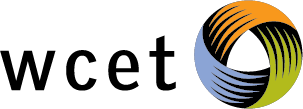OLC and WCET Ask: “What Keeps You Up at Night?” – Part 2
Published by: WCET | 4/26/2017
Tags: Managing Digital Learning, WCET, WCET Annual Conference
Published by: WCET | 4/26/2017
Tags: Managing Digital Learning, WCET, WCET Annual Conference
This is the second in a two-part series on a partnership between the Online Learning Consortium (OLC) and WCET (the WICHE Cooperative for Educational Technologies) to obtain feedback from some of our members. Part 1 focused on the outcome of that general question at two sessions last fall. Part 2 is the results of a more targeted discussion at a recent OLC Innovate session. The participants were small groups who attended our conferences. Now we would like to open the conversation and hear from you.
Continuing the Conversation at OLC Innovate
Kathleen Ives (CEO of OLC), Karen Pedersen (Chief Knowledge Officer at OLC), and Russ Poulin (Director, Policy and Analysis at WCET) reviewed the results of your input as outlined in the Part 1 blog post. At OLC Innovate 2017 in New Orleans, we conducted a follow-up session. B
and Russ Poulin (Director, Policy and Analysis at WCET) reviewed the results of your input as outlined in the Part 1 blog post. At OLC Innovate 2017 in New Orleans, we conducted a follow-up session. B ased on results from the two Fall conferences, this time we focused strictly on issues surrounding accessibility. It was one area for which there was great concern expressed and for which our organizations could collaborate to better serve our members…and students.
ased on results from the two Fall conferences, this time we focused strictly on issues surrounding accessibility. It was one area for which there was great concern expressed and for which our organizations could collaborate to better serve our members…and students.
To glean insights from the group assembled at Innovate, we asked “as a leader navigating accessibility issues on your campus, what is the one issue/challenge that keeps you up at night”? The insights were encapsulated into three primary trends focusing on students, faculty, and systems.

We then did a deeper dive and asked “What resources do you rely on today and what resources would you like to have for tomorrow?” Excerpts from attendees on this two-part question included:
More Feedback Wanted. What’s Next?
We greatly appreciate the input from those attending the OLC Innovate session. It was a small group and we would like to expand the conversation.
 Do these accessibility topics resonate with you? Please add comments with insights or perspectives you would like to share.
Do these accessibility topics resonate with you? Please add comments with insights or perspectives you would like to share.
We are in talks now about next steps. We are thinking about better methods to track the “what keeps me up at night” question in the future. We are also talking about shared resources focusing on accessibility issues.
Kathleen Ives
OLC Chief Executive Officer and
Executive Director
Karen Pedersen
OLC Chief Knowledge Officer
Russ Poulin
WCET Director of Policy and Analysis
